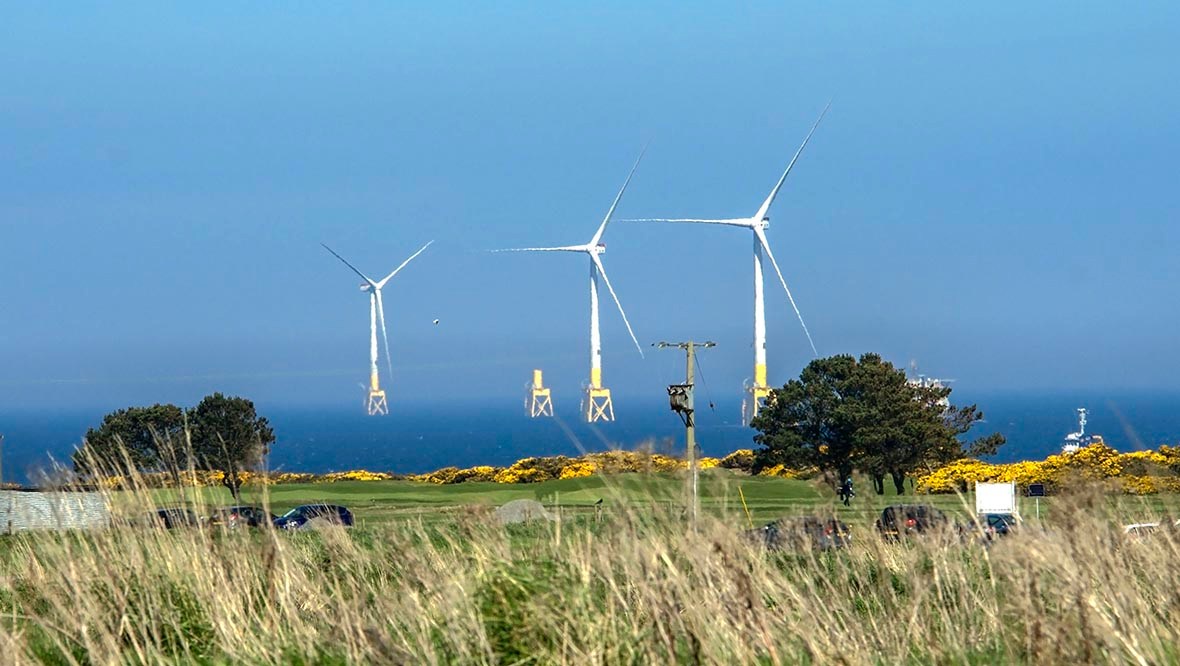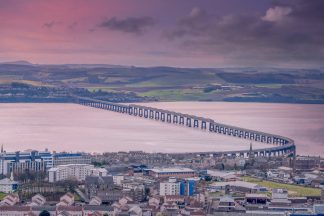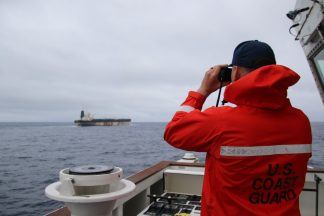‘The net-zero capital of the world’.
That, according to the First Minister, is the aim for Aberdeen.
Perhaps then there will understandably be delight at figures today that show energy generated in Scotland from renewables has reached a record high.
There is more to come too.
Scotwind projects are expected to provide more than 27GW in capacity and billions of pounds to the Scottish economy in the coming years.
Renewable capacity is now around 13GW in Scotland, up from 1.4GW more than 2 decades ago.
This is all great news but there is still plenty of work to be done.
How we use that clean, green energy to power and heat our homes, run our transport and crucially bring down our bills.
Many of us still use gas to heat our homes.
While overall in Scotland our gas consumption has dropped since 2008, it has stabilised in recent years.
The war in Ukraine has put energy security in sharp focus for many.
Few would have thought that we could be talking about possible blackouts, however ‘unlikely’ that the National Grid says it could be.
The wholesale price of gas and oil has dropped since the earlier this year but still remain higher than this point in 2021.
That has a big impact on what we pay in our energy bills and on the forecourts.
The UK Government has enforced the energy cap for the next two years.
Good news perhaps for many households but let’s remember the cap has roughly doubled since August last year.
Scotland showcased to the world our desire to move to cleaner energy at COP26 last year in Glasgow.
Before the event and during it the talk was how quickly we could move from oil and gas, that included from the UK Government.
Now, another round of oil drilling licences has recently been announced.
It has, as you would imagine, divided opinion.
Those who see it as protecting us from future shocks in our energy market and helping secure our energy as we move to greener technology and those who believe we need to increase our focus on wind, tidal and hydro before any more drilling is done.
Protecting and creating jobs is another crucial factor in our move to renewable energy.
‘Just Transition’ has become the buzz phrase of the past few years in the energy sector.
How we move jobs in oil and gas and benefit the manufacturing sector from the creation of new wind or tidal machines will determine how successful our greener economy will be.
There are great examples, such as Orbital Marine Power’s O2 tidal turbine.
Built in Dundee and working off the coast of Orkney.
WWF Scotland say the ‘challenge ahead’ is converting this greener energy to heat our homes and drive our transport.
That will be one of the many future challenges as Aberdeen and Scotland look to become the ‘net zero capital of the world.’
The aim is clear but there is still a lot more work to do
Follow STV News on WhatsApp
Scan the QR code on your mobile device for all the latest news from around the country


 Iweta0077
Iweta0077
























